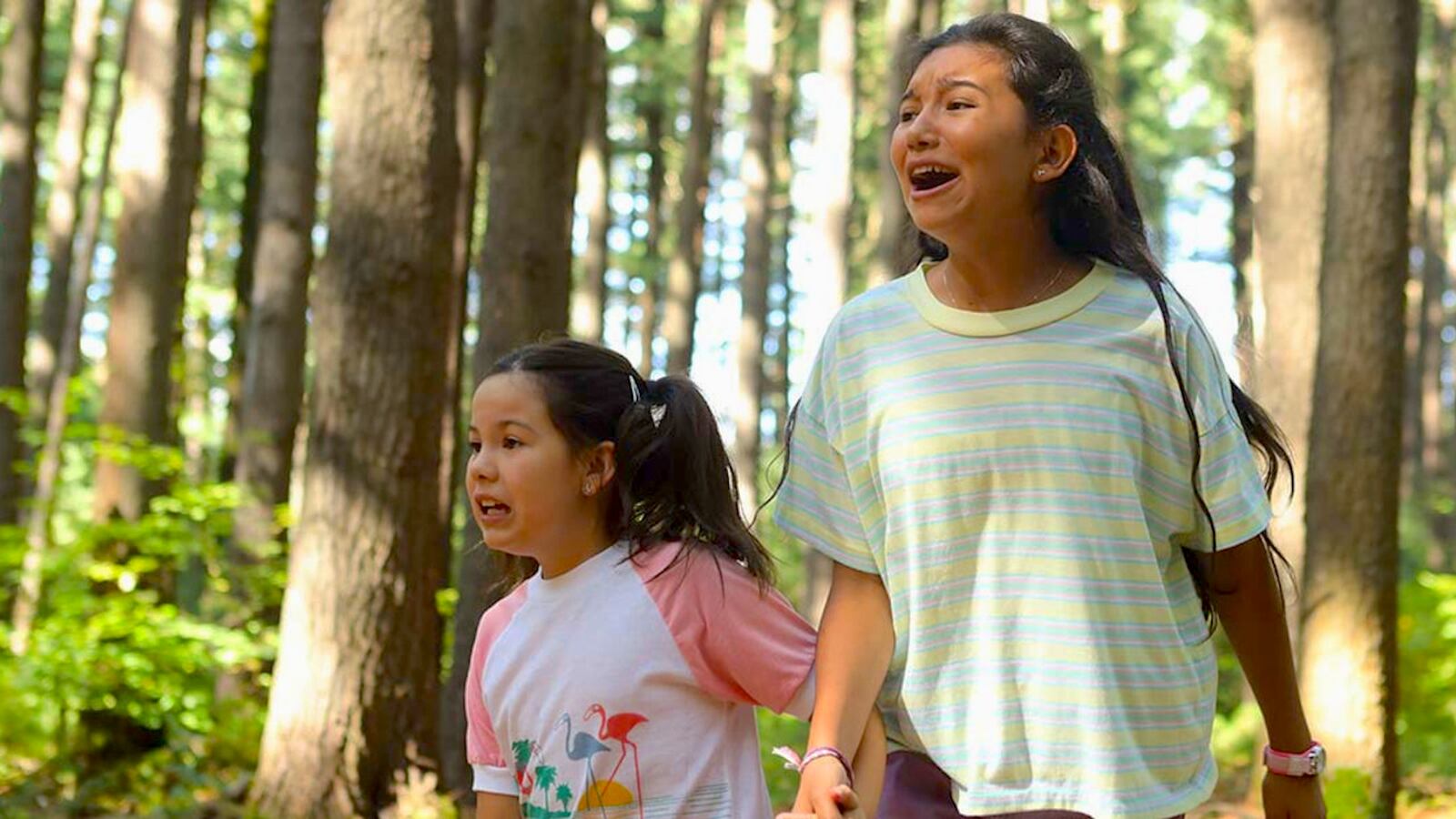At an online panel highlighting Canadian talent at the Toronto International Film Festival, Tracey Deer, whose debut feature Beans premiered Sunday as part of the festival’s Discovery sidebar, remarked that her political coming-of-age story was “thirty years in the making.” She was referring to the fact that her traumatizing experience as a 12-year-old during the 1990 Oka Crisis, an intense, 78-day standoff between Mohawk activists and the French-speaking Quebecois majority in a village northwest of Montreal, convinced her that it was necessary to transmute her raw childhood memories into a movie.
Although Deer has considerable experience in both documentary cinema and Canadian television (her series Mohawk Girls, based on her documentary of the same name, was a long-running hit north of the border), it’s clear that Beans is a cherished pet project. As such, despite the film’s admirable earnestness, it’s slightly marred by an aspiration to cram all of her autobiographical and political ruminations of the last thirty years into a fast-moving ninety minutes.
Like many historical films, Deer’s autobiographical docudrama-cum-teen film is primarily about how a protagonist achieves maturity against the backdrop of a life-changing historical event. In the case of Beans, Deer’s heroine on the cusp of adolescence—Tekahentahkwa (known to all by her nickname “Beans” and convincingly played by the talented young actress Kiawentiio Tarbell)—must deal with virulent racism while enduring all the perils of being a teenager; vignettes foregrounding thwarted crushes and peer pressure are interspersed with her increasing awareness of political ferment.
A mainstream fiction film, restricted by a conventional narrative arc, cannot hope to capture this era as well as Alanis Obomsawin’s Kanehsatake: 270 Years of Resistance (1993), (available for viewing free of charge on the National Film Board of Canada’s website), an epic documentary chronicling the Oka crisis that was the first non-fiction film to win an award for Best Canadian Feature at TIFF in 1993. Employing a skilled mixture of archival footage, voiceover narration, and first-hand testimonies, Obomsawin explores a conflict that pitted the Royal Canadian Mounted Police and local Quebec law-enforcement authorities against Indigenous activists. The standoff was triggered by the decision of the municipality of Oka to expand a golf course and build housing on ancestral Mohawk lands. Before a settlement was reached between the warring factions, which resulted in the cessation of work on the reconstruction of the gulf course, one person was killed and, according to estimates, nearly 100 participants were wounded.
Deer attempts to convey the feverish political ambiance of the early ‘90s in Quebec by demonstrating how Beans and her family respond to the crisis while simultaneously tackling the dynamics of normal teenage rebellion. Beans experiences a certain amount of inner turmoil, a consequence of her yearning to attend a posh private school where she can nurture her passion for art despite confronting the scorn her Mohawk pals heap on her mother’s plan to send her to this white institution. Furthermore, Beans’ rather insulated existence in a loving family is shattered when her father joins the resistance and she is exposed to the intensity of the conflagration when the family car is pelted with rocks.
Beans is in fact strongest as it recounts one family’s encounter with undiluted racial hatred. Beans and her mother (winningly played by Rainbow Dickerson) are shocked when a formerly amiable Quebecois storeowner turns into a hostile racist and refuses to sell them groceries as his Francophone brethren grow more hostile to the Mohawk resistance.
The film comes off as a bit more generic when dealing with Beans’ budding sexuality and her attempts to find acceptance from more rambunctious, less studious peers in the Indigenous community. Beans’ efforts to deal with the threat of sexual assault from the brother of a close friend is wrenching, but also reminiscent of familiar crises in mainstream teen films.
After the Oka standoff ends and the Mohawk community experiences a moment of triumph, Beans builds to a rousingly optimistic conclusion and the heroine realizes her once-elusive dream of attending a private school. Even her kid sister Ruby (Violah Beauvais) thinks Beans looks “cool” in her new uniform. Still, Deer’s film clearly implies that this hard-won victory will just be remembered as one transient episode in an ongoing struggle.


